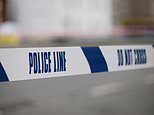[ad_1]
With a little thought and pre-planning, you can make sure your air trip is as comfortable and pleasurable as possible. Here are some great tips to help you determine if you’re in line for an upgrade, which are the best seats on the airplane, and even what to do if you find your passport has expired shortly before you depart.
What does that letter on my airline ticket mean?
Of all the information on an airline ticket, a single letter can tell you just how comfortable your trip is likely to be. The letter you’re looking for is just before the date of the flight. It tells the check-in person just how much you paid for your flight, which dictates your chances of getting an upgrade or even a decent seat at the front of the plane.
The letter Y on a BA ticket, for instance, denotes a full economy fare, while S, Q and O are evidence that it’s a discounted fare and your rightful place might well be by the toilets. Each airline has its own code, but luckily http://www.flyertalk.com, which is devoted to airline minutiae, gives a detailed rundown in its Miles & Points forum.
Which seats should I prebook?
Check out http://www.seatguru.com, which will steer you towards the choicest seats. They have plenty of tips, such as which rows are closest to the air conditioning – and therefore colder – and which have no window.
You have to wait until check-in to request seats by the emergency exits. These are never available on the web because the airline must ensure you are able-bodied.
However, they’re not always the best choice. On some planes, the emergency exit row is impeded by the shape of the door. Similarly, if the plane is fitted with an emergency chute the smart position to try for is the window seat of the row behind the exit. It will have no seat in front of it so that the cabinet holding the chute can be accommodated. You should also check out the rows near the back – as the cabin tapers towards its tail, some seats have extra pitch.
Which seats should I avoid?
It’s easier to suggest rows to avoid.
If you think children and air travel do not mix, steer clear of the area around the bulkhead. This is where airlines usually place those with babies and toddlers. And give the rows directly in front of the bulkhead and at the very back a miss, as these seats generally do not recline fully. If noise disturbs you, again avoid the back, where the roar of the engines is louder. And if you suffer from airsickness, aim to sit close to the leading edge of the wing, where you are least likely to end up searching for the sick bag.
How to get an emergency passport
For the inefficient would-be traveler who has failed to realize their passport is two years out of date, there is an alternative to full-scale despair.
First, do an Internet search on ’emergency passport’ and find the telephone number of the appropriate government department. Then telephone and plead your case for immediate help. Different countries run different emergency schemes, but be prepared to attend in person, and to pay extra fees for fast-tracking your passport.
Relax before your flight
If you become a member of one of the VIP lounge clubs, you can relax with drinks, snacks, newspapers and magazines away from the hustle and bustle of the airport – some credit or charge cards also give you access to the same or similar facilities.
Have a comfortable trip
If you’re taking a long flight, it may be a good idea to buy a noise-reduction headset at the airport. If you’re prone to jetlag, there have been some encouraging reports about the effectiveness of melatonin (see http://www.melatonin.com/melatonin-jet_lag.php).
Of course, on any flight, it’s a good idea to avoid alcohol and drink plenty of water.
Flight cancellation by airlines in the EU
If you are flying to or from an EU airport or on an EU airline, the EU rules are clear. If a flight is cancelled less than seven days before departure, you are entitled to a refund, a flight home and compensation, the value of which depend on the distance you are flying and the delay in getting you back. You should be given written notice at the airport and compensation must be paid within seven days. Details of these and other regulations can be found at the official EU site at http://ec.europa.eu/transport/air_portal/.
You are also entitled to refreshments at the airport, depending on the time you are waiting and two free telephone calls, plus overnight accommodation and transfers if appropriate. The Air Transport Users Council (AUC) website gives full details on http://www.auc.org.uk.
However, in certain ‘extraordinary circumstances’, including bad weather, unexpected safety shortcomings and security risks, there would be no right to compensation.
We’ve found that some airlines’ airport staff appear to be better trained in the exclusions than in the provisions of the regulations, so always be persistent and demand your rights.
And have a safe and smooth trip!
[ad_2]




